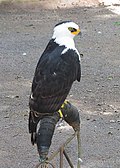Superregnum: Eukaryota
Cladus: Unikonta
Cladus: Opisthokonta
Cladus: Holozoa
Regnum: Animalia
Subregnum: Eumetazoa
Cladus: Bilateria
Cladus: Nephrozoa
Superphylum: Deuterostomia
Phylum: Chordata
Subphylum: Vertebrata
Infraphylum: Gnathostomata
Megaclassis: Osteichthyes
Cladus: Sarcopterygii
Cladus: Rhipidistia
Cladus: Tetrapodomorpha
Cladus: Eotetrapodiformes
Cladus: Elpistostegalia
Superclassis: Tetrapoda
Cladus: Reptiliomorpha
Cladus: Amniota
Classis: Reptilia
Cladus: Eureptilia
Cladus: Romeriida
Subclassis: Diapsida
Cladus: Sauria
Infraclassis: Archosauromorpha
Cladus: Crurotarsi
Divisio: Archosauria
Cladus: Avemetatarsalia
Cladus: Ornithodira
Subtaxon: Dinosauromorpha
Cladus: Dinosauriformes
Cladus: Dracohors
Cladus: Dinosauria
Ordo: Saurischia
Cladus: Eusaurischia
Subordo: Theropoda
Cladus: Neotheropoda
Cladus: Averostra
Cladus: Tetanurae
Cladus: Avetheropoda
Cladus: Coelurosauria
Cladus: Tyrannoraptora
Cladus: Maniraptoromorpha
Cladus: Maniraptoriformes
Cladus: Maniraptora
Cladus: Pennaraptora
Cladus: Paraves
Cladus: Eumaniraptora
Cladus: Avialae
Infraclassis: Aves
Cladus: Euavialae
Cladus: Avebrevicauda
Cladus: Pygostylia
Cladus: Ornithothoraces
Cladus: Ornithuromorpha
Cladus: Carinatae
Parvclassis: Neornithes
Cohors: Neognathae
Cladus: Neoaves
Ordo: Accipitriformes
Familia: Accipitridae
Subfamilia: Aquilinae
Genus: Spizaetus
Species: S. isidori - S. melanoleucus - S. ornatus - S. tyrannus
Name
Spizaetus Vieillot, 1816
References
Vieillot, L.J.P. 1816. Analyse d'une nouvelle ornithologie élémentaire. 70 pp. Paris: Deterville. P.24 BHL Reference page.
IOC World Bird List
Vernacular names
suomi: Jalokotkat
Spizaetus is the typical hawk-eagle birds of prey genus found in the tropics of the Americas. It was however used to indicate a group of tropical eagles that included species occurring in southern and southeastern Asia and one representative of this genus in the rainforests of West Africa. The Old World species have been separated into the genus Nisaetus.[1] Several species have a prominent head crest. These are medium to large-sized raptors, most being between 55 and 75 cm (21.5 and 29.5 in) long, and tend to be long-tailed and slender.
The American Ornithologists' Union merges Spizastur into Spizaetus since 2007.[2]
Spizaetus eagles are forest birds with several species having a preference for highland woodlands. They build stick nests in trees. The sexes are similarly plumaged with typical raptor brown upperparts and pale underparts, but young birds are distinguishable from adults, often by a whiter head.
These eagles eat medium-sized vertebrate prey such as mammals, birds and reptiles.
The species that were historically placed in this genus are:
New World species retained in Spizaetus
| Image | Scientific name | Common Name | Distribution |
|---|---|---|---|
.jpg/120px-Gavião-pega-macaco_(Spizaetus_tyrannus).jpg) |
Spizaetus tyrannus | Black hawk-eagle or tyrant hawk-eagle | central Mexico to eastern Peru, the south of Brazil, and far northern Argentina |
 |
Spizaetus melanoleucus | Black-and-white hawk-eagle, traditionally Spizastur | Oaxaca to Veracruz in southern Mexico southwards throughout Central America |
 |
Spizaetus ornatus | Ornate hawk-eagle | southern Mexico and the Yucatán Peninsula, to Trinidad and Tobago, south to Peru and Argentina |
 |
Spizaetus isidori | black-and-chestnut eagle | Northern Andes (including Venezuelan coastal range and Sierra Nevada de Santa Marta) |
Old World species now moved to Nisaetus
Flores hawk-eagle Nisaetus floris (earlier Spizaetus cirrhatus floris or Spizaetus floris)
Mountain hawk-eagle, Nisaetus nipalensis (earlier Spizaetus nipalensis)
The Western Ghats and Sri Lankan race has been suggested as a full species Nisaetus kelaarti.[3]
Blyth's hawk-eagle, Nisaetus alboniger (earlier Spizaetus alboniger)
Javan hawk-eagle, Nisaetus bartelsi (earlier Spizaetus bartelsi)
Sulawesi hawk-eagle, Nisaetus lanceolatus (earlier Spizaetus lanceolatus)
(Northern) Philippine hawk-eagle, Nisaetus philippensis (earlier Spizaetus philippensis)
Southern Philippine hawk-eagle, Nisaetus pinskeri (earlier Spizaetus (philippensis) pinskeri)
Wallace's hawk-eagle, Nisaetus nanus (earlier Spizaetus nanus)
Moved to Aquila
Cassin's hawk-eagle, Aquila africana (earlier Spizaetus africanus)
Footnotes
Helbig AJ, Kocum A, Seibold I & Braun MJ (2005) A multi-gene phylogeny of aquiline eagles (Aves: Accipitriformes) reveals extensive paraphyly at the genus level. Molecular phylogenetics and evolution 35(1):147-164 PDF[permanent dead link]
Banks et al. (2007)
Gjershaug, J. O.; Diserud, O. H.; Rasmussen, P. C. & Warakagoda, D. (2008) "An overlooked threatened species of eagle: Legge’s Hawk Eagle Nisaetus kelaarti (Aves: Accipitriformes)" (PDF) Zootaxa 1792: 54–66
References
Banks, Richard C.; Chesser, R. Terry; Cicero, Carla; Dunn, Jon L.; Kratter, Andrew W.; Lovette, Irby J.; Rasmussen, Pamela C.; Remsen, J.V. Jr; Rising, James D. & Stotz, Douglas F. (2007): Forty-eighth Supplement to the American Ornithologists’ Union Check-List of North American Birds. Auk 124(3): 1109–1115. DOI:10.1642/0004-8038(2007)124[1109:FSTTAO]2.0.CO;2 PDF fulltext
Barlow, Clive (1997): A field guide to birds of The Gambia and Senegal. Pica Press, Nr. Robertsbridge (East Sussex). ISBN 1-873403-32-1
ffrench, Richard; O'Neill, John Patton & Eckelberry, Don R. (1991): A guide to the birds of Trinidad and Tobago (2nd edition). Comstock Publishing, Ithaca, N.Y.. ISBN 0-8014-9792-2
Gamauf, Anita; Gjershaug, Jan-Ove; Røv, Nils; Kvaløy, Kirsti & Haring, Elisabeth (2005): Species or subspecies? The dilemma of taxonomic ranking of some South-East Asian hawk-eagles (genus Spizaetus). Bird Conservation International 15(1): 99–117. doi:10.1017/S0959270905000080 (HTML abstract)
Haring E., Kvaloy, K., Gjershaug, J.-O., Rov, N., Gamauf A. (2007): Convergent evolution and paraphyly of the hawk-eagles of the genus Spizaetus (Aves, Accipitridae) - phylogenetic analyses based on mitochondrial markers. J. Zool. Syst. Evol. Research 45: 353–365. PDF
Grimmett, Richard; Inskipp, Carol, Inskipp, Tim & Byers, Clive (1999): Birds of India, Pakistan, Nepal, Bangladesh, Bhutan, Sri Lanka, and the Maldives. Princeton University Press, Princeton, N.J.. ISBN 0-691-04910-6
Hilty, Steven L. (2003): Birds of Venezuela. Christopher Helm, London. ISBN 0-7136-6418-5
Stiles, F. Gary & Skutch, Alexander Frank (1989): A guide to the birds of Costa Rica. Comistock, Ithaca. ISBN 0-8014-9600-4
Retrieved from "http://en.wikipedia.org/"
All text is available under the terms of the GNU Free Documentation License

